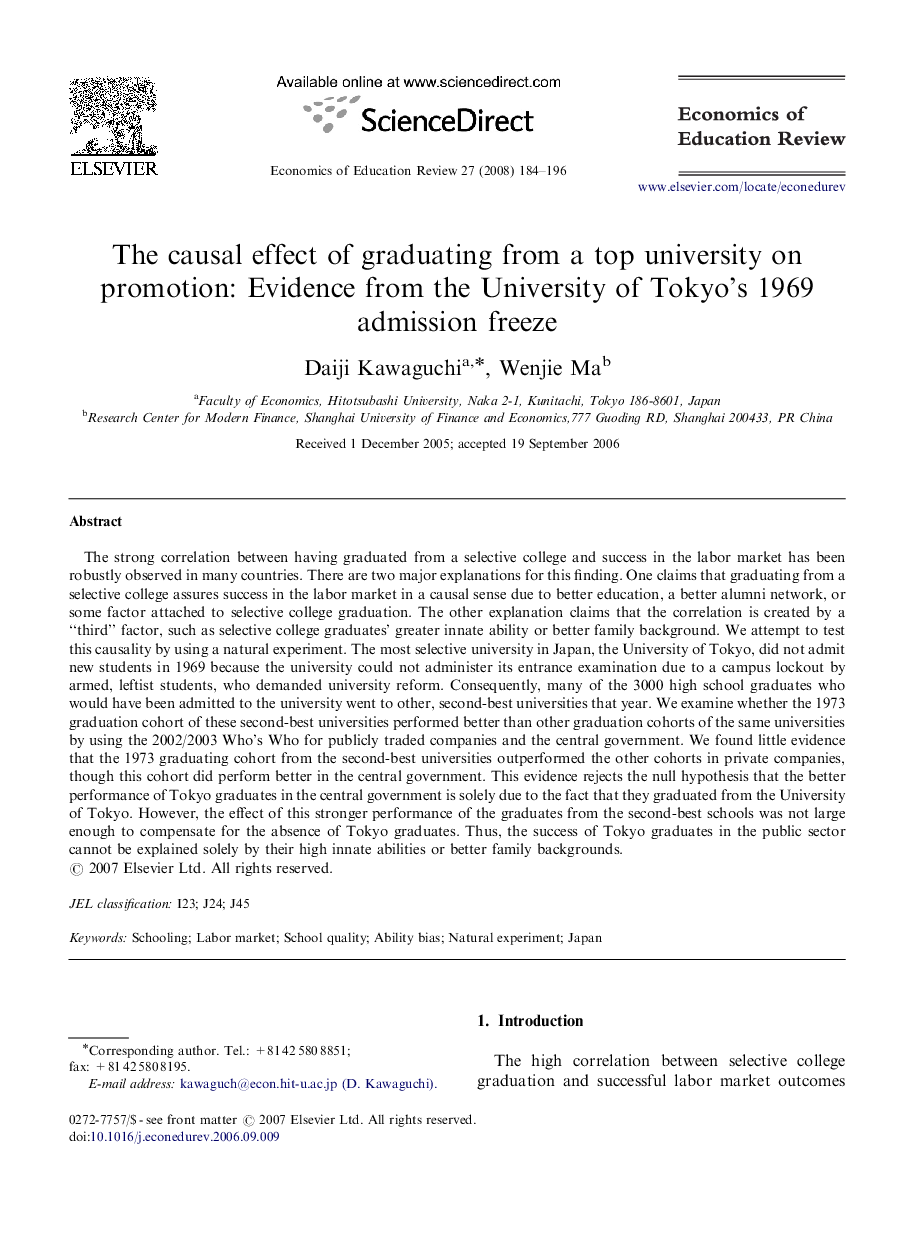| Article ID | Journal | Published Year | Pages | File Type |
|---|---|---|---|---|
| 354917 | Economics of Education Review | 2008 | 13 Pages |
The strong correlation between having graduated from a selective college and success in the labor market has been robustly observed in many countries. There are two major explanations for this finding. One claims that graduating from a selective college assures success in the labor market in a causal sense due to better education, a better alumni network, or some factor attached to selective college graduation. The other explanation claims that the correlation is created by a “third” factor, such as selective college graduates’ greater innate ability or better family background. We attempt to test this causality by using a natural experiment. The most selective university in Japan, the University of Tokyo, did not admit new students in 1969 because the university could not administer its entrance examination due to a campus lockout by armed, leftist students, who demanded university reform. Consequently, many of the 3000 high school graduates who would have been admitted to the university went to other, second-best universities that year. We examine whether the 1973 graduation cohort of these second-best universities performed better than other graduation cohorts of the same universities by using the 2002/2003 Who's Who for publicly traded companies and the central government. We found little evidence that the 1973 graduating cohort from the second-best universities outperformed the other cohorts in private companies, though this cohort did perform better in the central government. This evidence rejects the null hypothesis that the better performance of Tokyo graduates in the central government is solely due to the fact that they graduated from the University of Tokyo. However, the effect of this stronger performance of the graduates from the second-best schools was not large enough to compensate for the absence of Tokyo graduates. Thus, the success of Tokyo graduates in the public sector cannot be explained solely by their high innate abilities or better family backgrounds.
